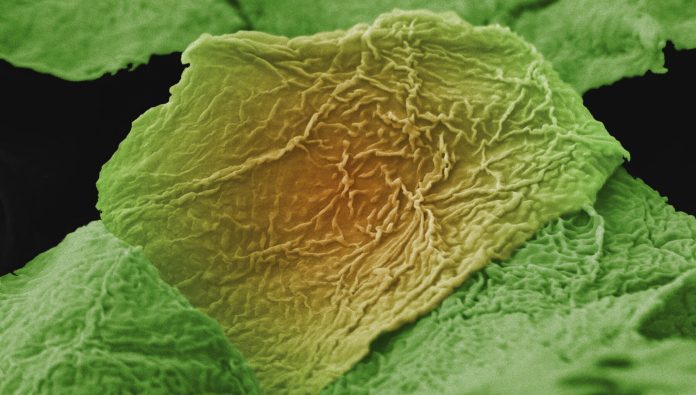Melanoma skin cancer cases in the UK have reached an all-time high according to figures from Cancer Research UK.
Their latest analysis shows there are 17,500 cases being diagnosed per year and projections reveal that these high numbers could continue to increase by around 50% over the next 20 years.
Temperatures are still set to rise this summer and the UK public is keen to make the most of the good weather. But this comes with risks. It’s well proven that sun exposure is linked to skin cancer. And it’s believed that this is causing the rapid rise of cases.
Almost 9 out of 10 skin cancer cases in the UK are caused by overexposure to ultraviolet (UV) radiation from the sun and sunbeds. It damages the DNA in our skin cells which can build up over time and lead to skin cancer.
Sunbathing has been popular since the 1970s, before people became more aware of skin cancer, and now we’re seeing the consequences of the tanning trend. In people aged 55 and older the probability of getting skin cancer has almost tripled since the 1990s.
But the sun may not be the only factor leading to these high numbers. Older age is one of the main risk factors for cancer, and as the UK’s population grows, we’re also living longer.
But there is some good news too. More people are noticing their skin changes and getting them checked by their GP.
And despite the record increase, death rates from skin cancer have started to decline. Now more people than ever are surviving skin cancer thanks to the incredible research and improvements in early diagnosis and treatments.
Our new analysis paints a mixed picture for cancer patients and the staff who care for them. While it’s promising that more people are seeking treatment for skin cancer earlier and survival is improving, it’s alarming that cases of the disease could soar over the coming years.
Michelle Mitchell, Chief Executive of Cancer Research UK said:
Our new analysis paints a mixed picture for cancer patients and the staff who care for them. While it’s promising that more people are seeking treatment for skin cancer earlier and survival is improving, it’s alarming that cases of the disease could soar over the coming years.
“Whether you’re holidaying abroad or enjoying the good weather closer to home, it’s important to take steps to reduce your risk of skin cancer, especially if you burn easily,” says Dr Julie Sharp, Head of health and patient information at Cancer Research UK.
Anyone can develop skin cancer and getting sunburnt just once every two years can triple the risk.
The damage to skin cells caused by sunburn can last beyond the moments of pain and irritation. It can build up over time and increase cancer risk. So, protecting your skin, even if you’ve been sunburnt before, can make a big difference.
Looking at the weather’s UV index can tell us how strong the sun’s UV rays are – which can be seen on any weather website or app. The higher the value, the greater risk of sunburn and the less time it can take to damage your skin.
Sunburn doesn’t just happen abroad or during summer holidays. The sun in the UK is often strong enough to burn or damage skin even when it’s cloudy.
“It’s important to take care in the sun and to contact your GP if you notice any unusual changes to your skin – it’s not just changes to a mole that matter, it could be a sore that doesn’t heal or any unusual changes to an area of your skin. Spotting cancer early can make all the difference,” says Mitchell.







